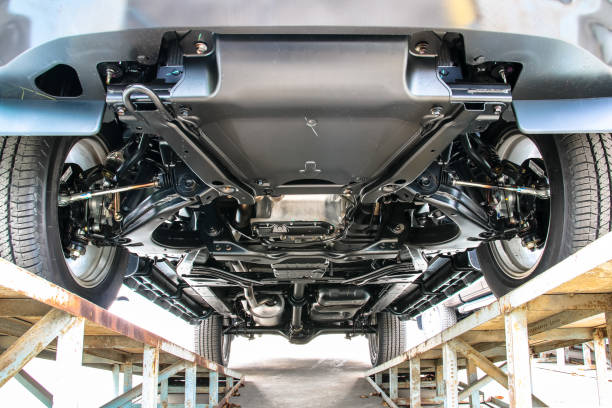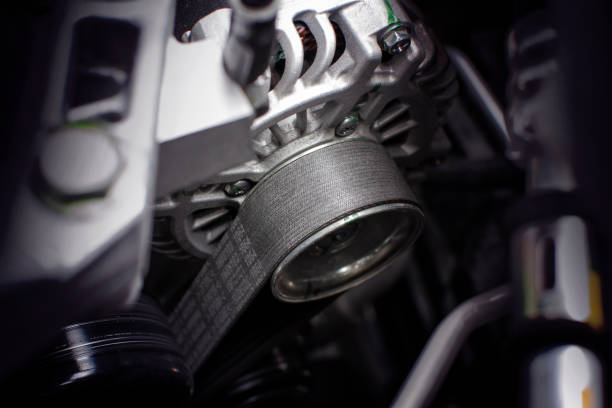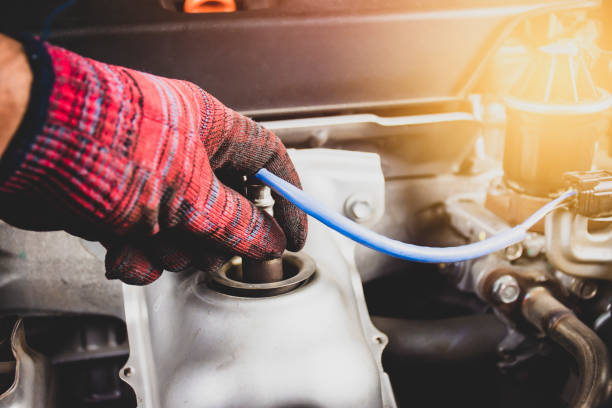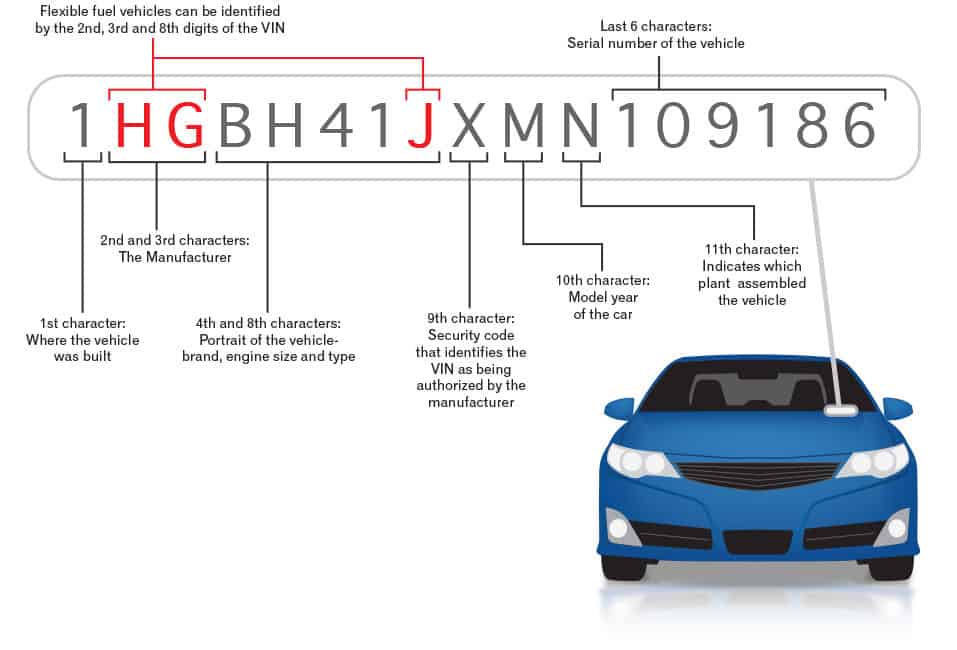
Most people have heard the term “vehicle identification number”, or VIN, but they don’t really know what it is. Yes, they understand that each car has its own number. But, what do those letters and numbers really mean? And, more importantly, why do we have vehicle identification numbers anyway?
In this article, we’ll break down exactly what a vehicle identification number is. We’ll also talk about why these numbers are so important. You’d be surprised at what kind of information these numbers really provide. You may also be surprised at how these numbers can be used.
Where Can You Find a VIN?
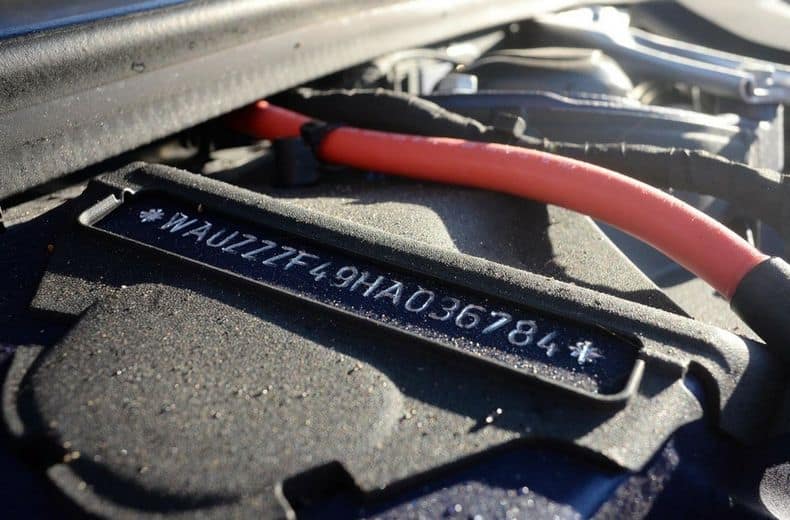
If you don’t know where to find the vehicle identification number on your vehicle, you only have to look in one of two places. The obvious place to find the VIN is on the driver’s side of your dashboard. It’s actually stamped on a small plate right near your windshield. But it can also be found stamped on the firewall of your engine. If someone manages to pry the number off your dashboard, the police or your mechanic will be able to find it by looking inside the engine.
What Do the Numbers and Letters on Your VIN Mean?
Most people think that their VIN is just a random combination of letters and numbers. After all, there are millions or billions of combinations of letters and numbers to pick from. Each VIN has 17 separate digits or letters. Each of these has a special meaning.
- The first 3 symbols will tell you where the car was made. This 3-digit code stands for the world manufacturer identifier. It will tell you what country the vehicle was made in.
- The 4-8th digits tell you information about your specific car. Some of this information includes:
– Model type
– Body type
– Restraint system
– Transmission type
– Engine code - The 9th digit is a random number called the “check digit.” This is purposely put there by the manufacturer to prevent people from changing their VIN.
- The 10th number or letter stands for the year your car was made.
- The 11th number stands for the manufacturing plant. Each auto manufacturer has dozens of plants. This number tells them which location the car was manufactured in.
- The 12-17th numbers are the product sequence number. This is assigned by the manufacturer and is unique to each vehicle.
What Information Can Be Tracked Using the Vehicle Identification Number?
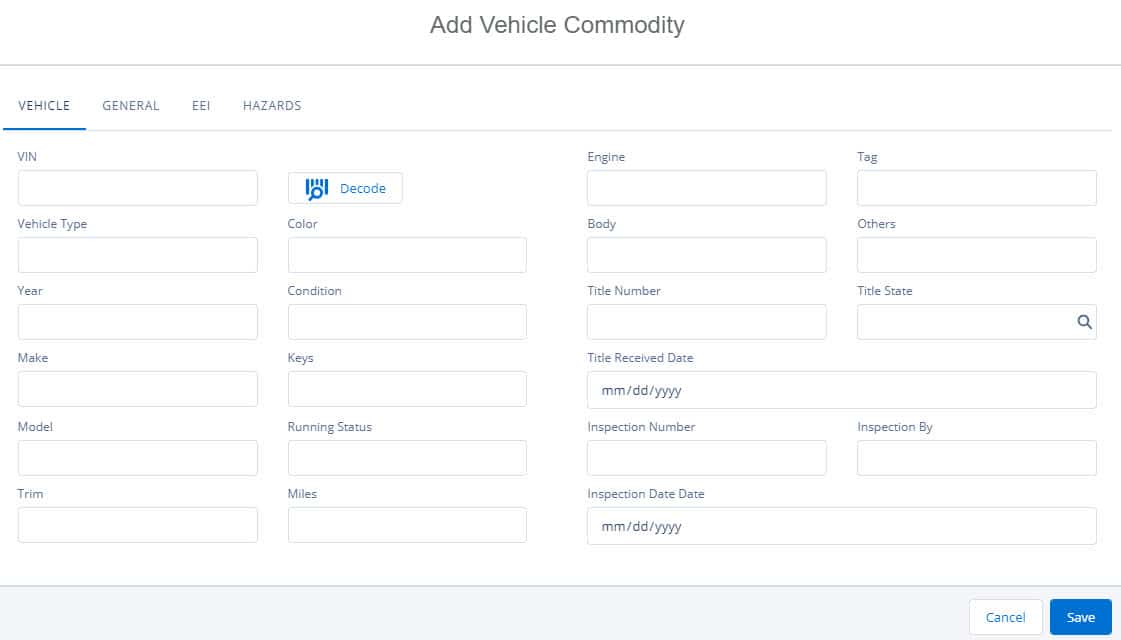
A lot of people think the VIN is only used for registration purposes. If you’ve ever looked at your registration card issued by the Department of Motor Vehicles, you’ll notice the VIN is printed right on there. When you apply for a new registration or want to renew your registration, the card you fill out will ask for this information. You’ll also notice this number is on some auto
insurance identification cards.
But there are a lot of other types of information that can be gleaned from your VIN. Some of these include:
- You can type your VIN into a search engine online and find out if there have been any recalls issued for your vehicle
- The manufacturer uses the VIN to issue recall notices
- When you trade in your car, the dealership can get an accident history on your car. If you’ve been in accidents and didn’t disclose them, it will drive down the trade-in value of your car.
- The VIN also lets third parties track vehicle ownership. If you try to register the car or transfer title, the DMV is going to run this search.
- The police can use the VIN to identify cars that have been stolen. It can even help them identify stolen car parts.
- Manufacturers can track vehicle upgrades and promotions using the VIN
- If you’ve ever been in an accident, people can tell by researching your vehicle identification number
Your vehicle identification number is kind of like your car’s fingerprints. It can’t be changed, removed or altered. And, it reveals all sorts of information about your car.
Why Would You Ever Need to Know Your VIN?

It makes sense that the manufacturer, police and DMV would need to track things using your VIN. But there also ways that knowing your VIN can help you.
If you ever need to order replacement parts, you can do that using your VIN. You can go online and order parts using this information. If you call a repair shop to get an estimate on how much repairs will cost, they may ask for your VIN.
As mentioned above, you can also check to see if there have been any recalls issued on your car using your vehicle identification number. Sometimes, you don’t get the recall notice in the mail when the manufacturer sends it. Or, maybe you had it but can’t find it. You can do an easy search online by entering your VIN.
If you’re looking to sell your car privately, you should do an accident and owner history. You can do this online as well. Or, you can order a car history report. This way, you don’t try to sell a car and then find out afterward that your car was involved in a major accident before you bought it.
If you’re looking to trade your car into a dealership so you can buy a new car, make sure you run the VIN. This will give you an idea of what the dealership is going to see when they run a check on your car. It’s always better to know this information ahead of time.
Can You Change Your Vehicle Identification Number?
Like we said above, your VIN is like your fingerprints. You really can’t change them. You can try to scrape it off or alter it – but why would you want to do this? This is the kind of thing people do when they steal a car. Even then, they probably won’t know to check the engine’s firewall. At some point, the police or DMV will be able to track your vehicle down.
That doesn’t mean that thieves don’t try to do these things. Just like criminals try to change their fingerprints by having their fingertips burned or disfigured, car thieves try to do the same thing with a VIN. They may scrape off some of the letters or numbers, hoping it will prevent the police from identifying the car as stolen. Or, they replace the VIN plate with another one.
Even if this does buy the thief some time, eventually, the police will track down the correct information. They can check the engine’s firewall. Or, they can track down the manufacturer and get the correct VIN. The police have access to a lot of information we don’t have.
Why Would You Want to Change the VIN?
It makes sense that a criminal would want to change or destroy the vehicle identification number. If they’re driving a stolen car, they don’t want the police to be able to see the VIN. The same is true if they want to sell a stolen car. They would need to change the VIN, otherwise, the prospective buyer would be able to look it up and see that it was stolen.
But criminals aren’t the only ones who try to change a VIN. Some people think that, if they change the vehicle identification number, a prospective buyer won’t know the car was involved in a terrible accident. The same can be true if someone simply doesn’t want to pay to register or insure a car. They think if the VIN isn’t apparent to the police or the DMV, they won’t have to worry about fines or tickets.
The best thing to do is never try to change your VIN. It’s there for a reason. 99% of you would never think about changing your vehicle identification number. But, if you were thinking of doing this, don’t bother. It will only make life more difficult for you.





